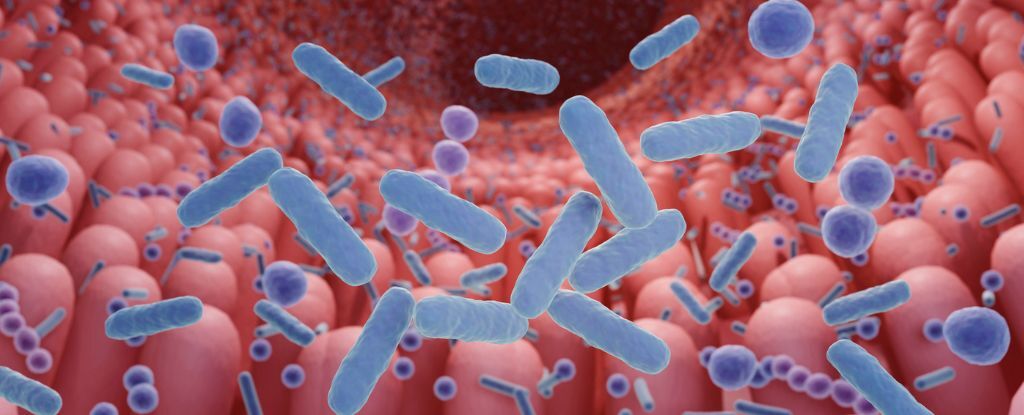Don’t really know what to make of this…
What’s more, in recent years, researchers have begun to find links between the makeup of microbes that call our guts home and neurodevelopmental disorders, like ASD.
Nevertheless, this connection isn’t always consistent, and some experts have argued it isn’t gut bacteria that trigger ASD, necessarily; it could be that kids with autism are more likely to restrict their diets because of ‘picky’ eating, which in turn influences the kinds of bacteria that persist in the digestive tract.
I’m not a scientist but diet and microbiome changes being a symptom of ASD seems more plausible than the other way around IMO.
We have made a lot of breakthroughs in understanding of gut bacteria in recent decades and we’ve linked a lot of neurological things to the gut biome so I wouldn’t be too surprised if either or neither were accurate.
i be poopin autisticly
As an autistic person with a severe gut disorder (ulcerative colitis - one of the risk factors is a diet high in processed foods) I think it’s very likely that autism causes gut issues, including microbiome issues. If you eat mostly the same foods, the bacteria that don’t feed off them will die off, and you get a less diverse, weaker microbiome. I’m not a microbiologist but I have personal experience here because my UC forces me to restrict my diet in strange ways when I have active inflammation (like for months or years), but I can later reintroduce foods, but then they’re harder to digest for a while because my microbiome has changed. So it makes sense that since most autistic people have more limited diets due to routine, obsession, or sensory issues, we would tend to have worse gut microbiomes.
People who view autism as a disease that might be curable will see any connection as a potential cause, even though in most cases the causal relationship is more likely to be in the other direction. It’s so frustrating.
The way I read it is we now know what we knew but don’t know anymore. The only concerning line is “potential treatments” I’m AuDHD and even though I have difficulty in certain things in my life I wouldn’t change them to be more NT.
I’d change in a heart beat. My sensory issues and struggles with executive function, social cluelessness, attention problems and so much more are not “super powers”. It sucks and I’d love to not have to figure out the rules by breaking them and then getting in trouble.
Going through life walking on eggshells is no way to live. I am trying to surround myself with people who are more understanding and I’m doing my best to be attentive when I have the spoons. But like… not understanding why people behave a certain way and simply not even knowing you’re supposed to react a certain way in certain social settings is exhausting.
I agree to some of those things, but the reason I wouldn’t change now is the same reason you would change. The people I’ve surrounded myself with are understanding and I don’t have to walk on eggshells. If you had asked me 5-10 years ago I would be in the same position as you. Lots of therapy and hard work later, I’ve learned to love myself (not saying you don’t) but I love me for me defects included and I don’t want to stop being me even if it would make things easier. This is just my personal feelings though and you are absolutely entitled to feel differently, I just wanted to share my perspective.
Not everyone has the same degree of autism. Well functioning children for example may not need any treatments. On the other hand, entirely non functioning children, who are depressed, so easily over stimulated that their lives are actively difficult, etc I would be shocked to see someone claim they should continue to suffer and reject potential treatments because others feel like their own autism doesn’t cause any issues.
I even know people who have their autism well under control who would have had much better childhoods and be happier today had there been better treatments, and would likely accept some treatments now given certain effects were possible.
To me it’s simply speaking that autism itself is a problem when it is a spectrum disorder and not every case is a “problem” it’s the language I have a problem with, not the idea that treatment could be available.
I promise that they are just speaking clinically. Any given treatments target specific symptoms or properties. Just as treatments for ADHD target things like executive dysfunction in various specific ways, but not on eliminating adhd as a condition, there is no feasible way to “cure” autism as you’re inferring from the phrasing. What might help is considering possible rephrasing to see that it’s just something English isn’t well tooled for.
Researchers almost never have an interest in this concept of “curing” something like autism. The focus is on reducing suffering caused by negative symptoms of conditions, pretty much always to the degree the patient desires.
Reading the quotes from the paper for example where they describe a boon here being identifying possible effects from intervention and to be able to predict the effects more accurately. I.e. better target symptoms with fewer side effects, and better design therapies.
i think that regardless, if this does appear to be a prevalent pattern with statistical significance, it would allow for people who may previously have gone undiagnosed/misdiagnosed to receive an accurate diagnosis. the idea of seeing this as a ‘problem’ requiring ‘potential treatment’ is spooky and insidious, but i still want to be excited about the good this could do.
One line that stuck out to me regarding the outcomes of the fecal transplants was ‘improved gastrointestinal symptoms’. If people with ASD have higher rates of GI-related issues, then the findings of this paper could be really helpful in understanding and improving treatments for GI problems in patients with ASD. Of course I understand the skepticism that this work could be used to try and cure something that doesn’t need to be cured, but my hope is that the more likely outcome is a more holistic understanding of ASD that leads to better medical care across all areas of health.
The word “gut” is a red flag for pseudoscience. There’s no such thing. Talk about specific organs and areas of the digestive system, not a “gut”.
The word “gut” is a red flag for pseudoscience. There’s no such thing. Talk about specific organs and areas of the digestive system, not a “gut”.
Is it though? Or are you overly confident in your knowledge, and being unnecessarily critical to the point of ignorance? And are just spreading misinformation?
Given this is a term used in the journal of Nature, the U.S. National Institute of Health, Universities (ie. Cambridge, Oxford), The American Society for Microbiology (ASM), the EU European Science Commission, the UK National Health System, and is used within countless publications to succinctly describes the “human microbiome” which is largely composed of the microbiome in the digestive tract (otherwise known as the “gut”), you are most definitely wrong.
It’s an actual term with a definition, just because you aren’t aware of it doesn’t mean it doesn’t exist…
Is a “digestive tract” also not a thing because it doesn’t describe a specific organ? How about the endocrine system? What about your immune system? Your body is made up of systems that interact in complex ways across organs, and often the organs themselves are not the imporibit either.
I would suggest you at least read the Wikipedia page before spouting such nonsense as this.
This is one of the times I wish the downvote button was enabled, this sort of nonsense shouldn’t be able to bubble up to the top by virtue of just finding enough people who also don’t know better.
The “gut” might not be an organ but I can’t see a microbe letting go of some tasty piece of food just because it happens to pass from the small incestine to the colon… (wrong terms can safely be attributed to my translation tool)…







